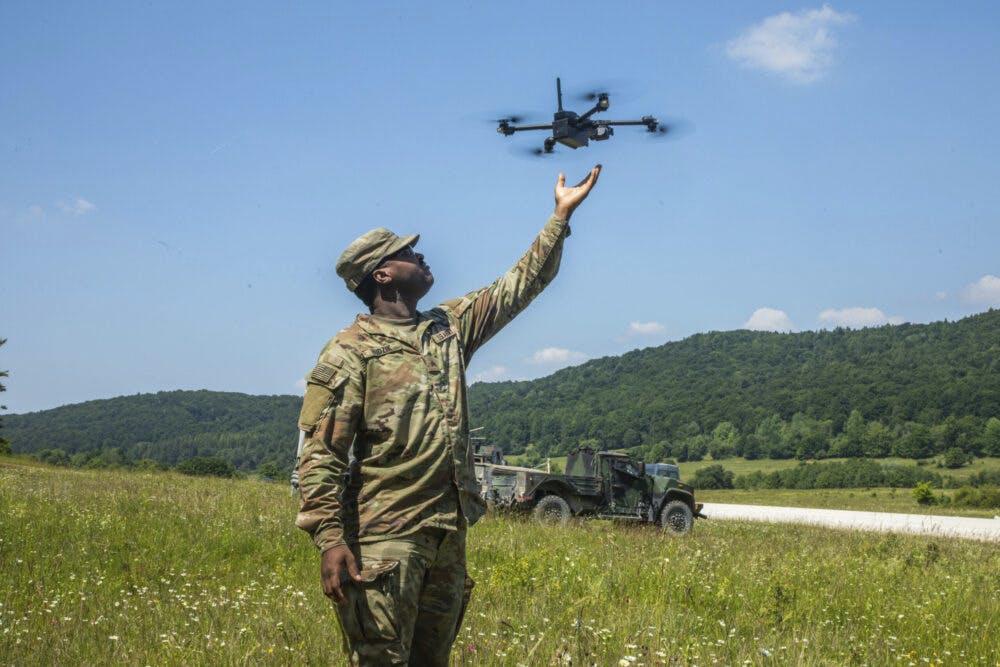IRS Pilot Programs Are Scaling New Tech at Speed

The IRS is looking to expand its streamlined procurement program, Pilot IRS, as it has begun to introduce emerging and innovative technologies iteratively and at speed to address various needs across the agency
Pilot IRS has the broad mission of offering incremental avenues to identifying, testing and deploying technological solutions to support various IRS mission areas. Unlike typical acquisition processes, Pilot IRS aims to shorten the award process, minimize use of challenge statements and maximize flexibility in the post-award process to accelerate procurement.
The program currently has about nine initiatives underway, with awards issued for projects such as scanning-as-a-service and optical character recognition. Given the progress that the agency has seen under Pilot IRS in these areas, Enterprise Digitalization and Case Management Senior Advisor Mitch Winans said he’s exploring the future growth of the program.
“How can we buy like a venture capitalist?” Winans said. “How can we bite off small, manageable chunks to be able to identify, test and evaluate technologies, spending a smaller amount of time and a smaller amount of money in an agile fashion before we more fully deploy something or try to scale it in a sustainable way across a specific program or office, or even more broadly across the agency?”
Pilot IRS drives its rapid procurement processes with rapid request for information timelines, with two-week response time deadlines and five-page submissions. The request for proposal process is also consolidated, calling for vendors to submit concise five-page technical proposals and one-page price proposals.
Across its nine projects, Pilot IRS has received 420 proposals, and the IRS has been able to issue awards to four or five companies for each round, Pilot IRS Senior Contracting Officer March Almeida said. She added that the projects have also served as an opportunity for new contracting opportunities for companies looking to contract with the government for the first time.
“It is a good way to get your foot inside of the federal government, especially with the IRS, if you’ve not done business with us before,” Almeida said. “We have awarded almost 60% [of contracts] to first-timers that have not done business with the government, especially the IRS, so it’s a good way to see how our proposal process goes and see if your solution is a good fit for our agency.”
Pilot IRS issued five of its first-phase scanning-as-a-service contracts in August, each at $200,000. The first 180-day phase is coming to a close soon, and the program will move to its next phase to allow for the most successful awardees to scale and grow with more funding. Since scanning-as-a-service’s first use case aims to process a billion pages of records in high quality, Management and Program Analyst Marisa Roinestad said that Pilot IRS is unlocking an iterative approach to these activities.
The program is also working with IT leadership to eventually integrate the pilot projects into the IRS’s overall enterprise architecture, said Acting Program Director for Digitalization, Research and Execution Crystal Young.
“We develop, iterate and scale to the target state architecture by identifying the requirements that define how the capabilities will be delivered technically,” Young said. “We identified digital solutions by decomposing the target state architecture into initiatives that drive the incremental delivery of new functionality.”
Young added that the partnerships across different offices within the IRS and the pilot program enable the agency to realize digitalization goals by identifying and prioritizing high-need requests, such as scanning and optical character recognition.
The IRS is looking to expand efforts, such as leveraging the scanning-as-a-service solutions for digital intake to create a data lake, and modernize architecture as successful Pilot IRS projects scale.
Five of the nine Pilot IRS projects underway are in their third phase, with scanning-as-a-service on the way to join that cohort. The optical character recognition project will soon follow.
This is a carousel with manually rotating slides. Use Next and Previous buttons to navigate or jump to a slide with the slide dots
-

DHA CDAO Spearheads Master Data Catalog to Boost Transparency
Jesus Caban plans to boost DHA's data maturity through a new master data catalog, governance frameworks and inventory of tech tools.
5m read -

IHS Prepares to Deploy PATH EHR at Pilot Sites in 2026
IHS targets PATH EHR pilot in 2026, emphasizing governance, collaboration and interoperability as key pillars of the modernization strategy.
4m read -

Trump Orders Spark Government-Wide Acquisition Overhaul
As Trump pushes for a faster, simpler procurement system, agencies are leveraging AI and adapting strategies to meet new requirements.
5m read -

IRS Makes Direct File Code Public as Lawmakers Debate Program’s Fate
The agency sees the Direct File source code as beneficial to government digital services despite what happens with it in proposed budgets.
5m read -

Inside Oak Ridge National Lab’s Pioneer Approach to AI
Energy Department’s Oak Ridge National Lab transforms AI vulnerabilities into strategic opportunities for national defense.
22m listen -

A Look at Federal Zero Trust Transformation
Recent developments from CISA and DOD show how government is advancing zero trust quickly.
20m read -

Modernization Strategies to Enable Energy Innovation
Lawrence Berkeley National Lab and Maximus experts explore the modernization strategies driving digital transformation and operational resilience within the energy sector.
33m watch -

DOI Must Modernize Energy to Win AI Race, Secretary Says
Doug Burgum links AI innovation to energy reform as DOI advances digital infrastructure and wildfire response under Trump’s tech agenda.
2m read -

Army Combines Commands to Propel Innovation Under New Transformation Plan
Lt. Gen. Miles Brown outlines a new transformation strategy after the AFC–TRADOC merger to integrate new technologies within 18 months.
4m read -

NIST to Release New AI Cybersecurity Guidance as Federal Use Expands
NIST plans to release AI cybersecurity guidance within the year to support safe adoption as federal agencies expand use cases.
4m read -

Federal Zero Trust Forum
The Federal Zero Trust Forum brings together key technology leaders from across government to explore practical strategies and share lessons for advancing zero trust architecture.
Ritz Pentagon City | 1250 S Hayes St, Arlington, VA 22202 -

CIA Adds Fourth Pillar to AI Strategy, CAIO Says
Lakshmi Raman says the new pillar marks a strategic shift toward embedding AI more deeply into the CIA’s day-to-day mission execution.
3m read
















